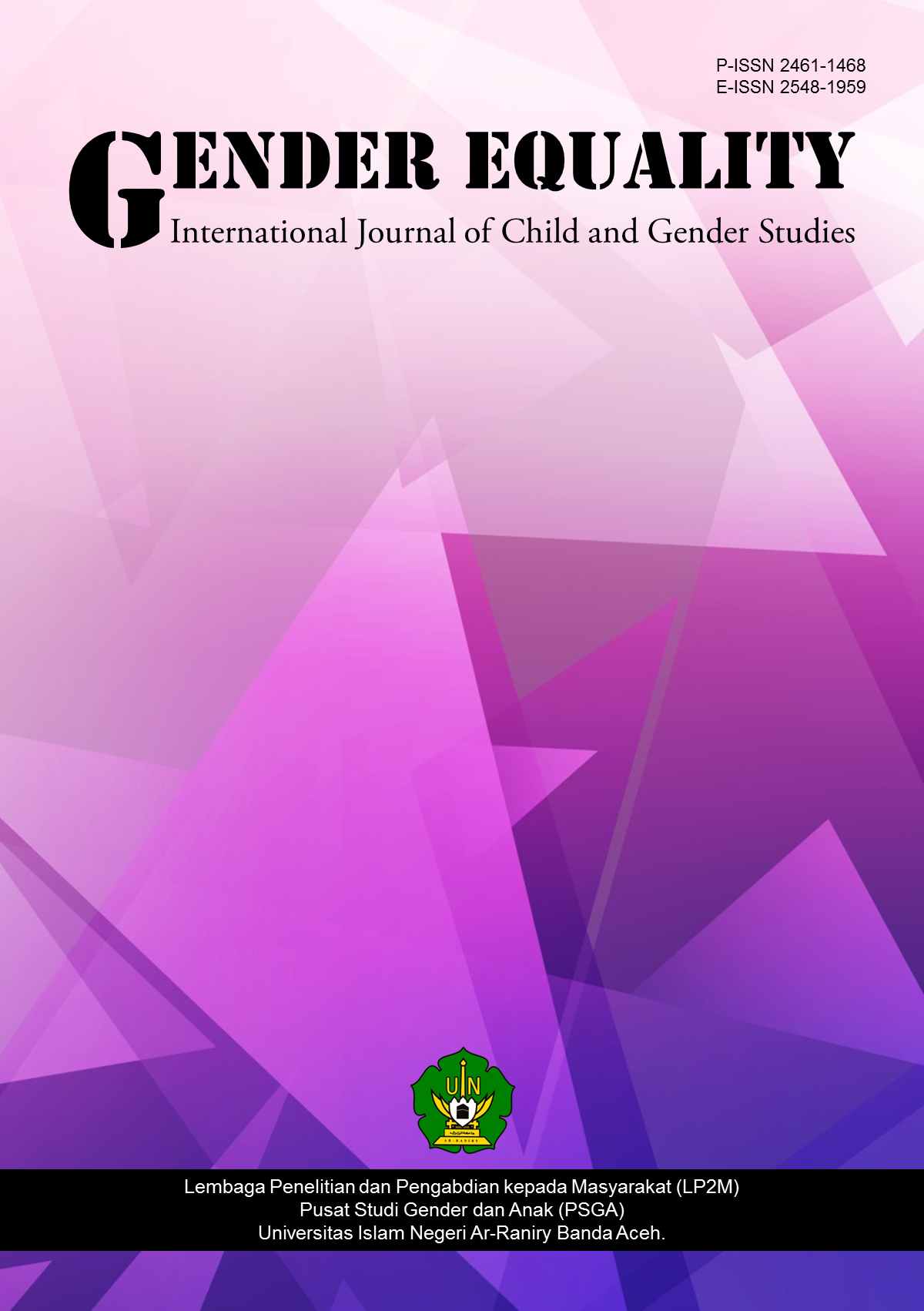LINGKUNGAN DAN PERKEMBANGAN ANAK USIA DINI DILIHAT DARI PERSPEKTIF PSIKOLOGI
DOI:
https://doi.org/10.22373/equality.v5i2.5586Keywords:
Environment, Child Development, PsychologyAbstract
Early childhood education is part of the application of lifelong education (life long education) which is the main portal towards the next level of education. There are 3 different environment that is very influential for the psychology and development of children. That is; first, the family environment is the main pillar to form the good and bad of the human person to develop well in ethics, morals, and morals, if not guarded properly, the effect can be prolonged. the family environment is also the initial formation of the person and character. Children's education requires an environment where he can develop the strengths he has brought from birth. Second, PAUD environment which is a place of education for children, PAUD environment should be fun for children and also provide opportunities for the development of the potential of each individual. Third, the environment of the wider community has a major influence on the successful planting of aesthetic values and ethics for character building. In the psychology of physical growth, cognitive development and psychosocial development of children from an early age are very important to be stimulated, so that children can develop according to their capacity.References
Ali Maksum dan Luluk Yunan Ruhendi, Paradigma Pendidikan Universal di Era Modern dan PostModern, (Yogyakarta: Ircisod, 2004)
Desmita. Psikologi Perkembangan. (Bandung: Rosda Karya, 2007)
E. Mulyasa, Manajemen PAUD, (Bandung: Remaja Rosdakarya, 2012).
Gordon, A.M & Browne, K.W. Beginning and Beyond: Foundations in Early Childhood Education.(New York: Delmar Publisher, Inc, 1985).
Hasan Langgulung, Pendidikan Islam dalam Abad ke 21, (Jakarta: PT Pustaka Al-Husna Baru, 2003)
Hildebrand, V. Introduction to Early Childhood Education. 4th. Ed. (New York: McMilan Publishing Company, 1986).
Horton, Paul .B dan Chester .L.Hunt. Sosiologi. Edisi keenam. Jakarta: Erlangga, 1999)
Hurlock, E.B. Psikologi Perkembangan: Suatu Pendekatan Sepanjang Rentang Kehidupan. (Jakarta: Erlangga, 1980)
Isaacs, Barbara, Bringing the Montessori Approach to Your Early Years Practice, (Oxon: Routledge, 2010).
Miller, P.H. Theories of Developmental Psychology. 3th. Ed. (New York: WH. Freeman and Company, 1993)
Monks, F.J., Knoerrs, A.M.P., Haditono, S.R. Psikologi Perkembangan: Pengantar dalam berbagai bagiannya. (Yogyakarta: UGM Press, 1994)
Moeslihatoen, R. Metode Pengajaran di Taman Kanak-Kanak, (Jakarta: Rineka Cipta, 1999)
Pemerintah R.I., Peraturan Menteri Pendidikan Nasional Nomor 58 Tahun 2009 tentang Standar Pendidikan Anak Usia Dini.
Semiawan, C. “Pengembangan Rambu-Rambu Belajar Sambil Bermain Pada Pendidikan Anak Dini Usia”. Buletin PADU. Jurnal Ilmiah Anak Dini Usia.Vol. 2 No: 01. April 2003.
Shaffer, David R. Social and Personality Development. (United States of America: Thomson Wadsworth, 2005)
Sholehuddin, M. Konsep Dasar Pendidikan Prasekolah. (Bandung: Fakultas Ilmu Pendidikan Universitas Pendidikan Indonesia, 2000)
Slavin, Robert E. Educational Psychology: Theory and Practice. (United State of America: Pearson, 2006)
Downloads
Published
Issue
Section
License
GENDER EQUALITY: International Journal of Child and Gender Studies allows the author(s) to hold the copyright and to retain the publishing rights without restrictions. Authors who publish with this journal agree to the following terms:
- Authors retain copyright and grant the journal right of first publication with the work simultaneously licensed under a Creative Commons Attribution License that allows others to share the work with an acknowledgment of the work's authorship and initial publication in this journal.
- Authors are able to enter into separate, additional contractual arrangements for the non-exclusive distribution of the journal's published version of the work (e.g., post it to an institutional repository or publish it in a book), with an acknowledgment of its initial publication in this journal.
- Authors are permitted and encouraged to post their work online (e.g., in institutional repositories or on their website) prior to and during the submission process, as it can lead to productive exchanges, as well as earlier and greater citation of published work.



